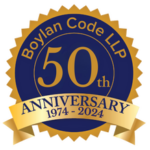The FTC has issued federal guidelines, effective December 1, 2010, to protect consumers from deceptive endorsements and advertising that may pose liability issues for employers who employees use social media such as blogs, LinkedIn or Facebook to comment on their employer’s products or services, even if the employee comments are not sponsored by or authorized by the company.
Such online posts can reach thousands of consumers over the Internet at a time, increasing the employer’s exposure to liability under the guidelines if a consumer later claims he was misled into purchasing dangerous or defective products or was otherwise injured based on the employee’s comments.
In the comments to the guidelines, the FTC indicated that it was unlikely to take action against a company based on the activities of a “single, rogue employee” whose conduct violated “an adequate company policy.” However, the FTC has brought enforcement actions against companies whose failure to establish or maintain appropriate internal procedures, i.e., adoption and implementation of a written social media policy, has resulted in consumer injury.
You should also be aware that the revised guidelines also impose liability on both endorsers and companies regarding all endorsements and testimonials in advertising where the endorser fails to disclose “material connections” between the endorser and the company; for example, a material connection could be a payment from the company to the endorser or the existence of some kind of employment relationship between the company and the endorser. These guidelines expressly apply to endorsements using new media such as blogs and social networking sites.
Under these guidelines, action by the FTC can be commenced against the company if its employee endorses the company’s products using social media or the Internet or otherwise posts a “promotional message” regarding the company’s goods and services without disclosing the employment relationship; any comment on line by an employee that could reasonably be construed as a “promotional message” could result in liability if the employment relationship is not disclosed at the time the comment is made.
The failure to comply with the guidelines can have far reaching consequences beyond an FTC enforcement action. Violations can also result in consumer protection lawsuits by state attorney generals as well as class action lawsuits.
To avoid liability, as an employer, the company must have an explicit social media policy to clarify for employees what conduct is permitted and what conduct is not permitted. To the extent that the company uses social media to promote its products on line, the company should adopt a written policy that clearly states the text of the required disclosure that employees must make when commenting on the company’s products or services. For example, “I am an employee of {Company Name}. The comments expressed are my personal opinions and do not reflect the opinions of {Company Name} or its management. I am not an authorized spokesperson for {Company Name}.”
The company social media policy must be in writing, be consistently implemented throughout the company and effectively monitored by the company. The social media policy should notify employees that the Company will monitor on line comment about the company, its products and services for compliance with the policy and discuss what sanctions will result from a violation of the policy. The social media policy should expressly address the standards of conduct applicable to employees when using social media to comment about the company, its products and/or services. It should also specifically require that any employee commenting online about the company, its products or services include a explicit disclosure of the employment relationship (as described above). The policy should also address intellectual property, defamation and privacy issues. Major companies are also requiring that any online post about the company from an employee be reviewed by the Marketing Department before posting.
While the FTC guidelines do not explicitly state that adopting a social media policy will provide complete insulation from liability for the company, adopting and implementing a social media policy is recommended by the FTC and in most cases, the existence of such a policy, provided that it is consistently enforced, will provide a shield from liability. However, if significant consumer injury results from a social media post by an employee, even if the post was made in violation of company policy, the company can still be held liable under the guidelines.
Note also that while no distinction is made under the guidelines between comments posted by an employee during working hours or off-hours, the FTC has taken the position that if the comments occur during working hours, then the employer is presumed to be “on notice” of the conduct.
To sum up, from a risk management perspective, to the extent that the company uses social media as a marketing tool, a written social media policy should be implemented.


